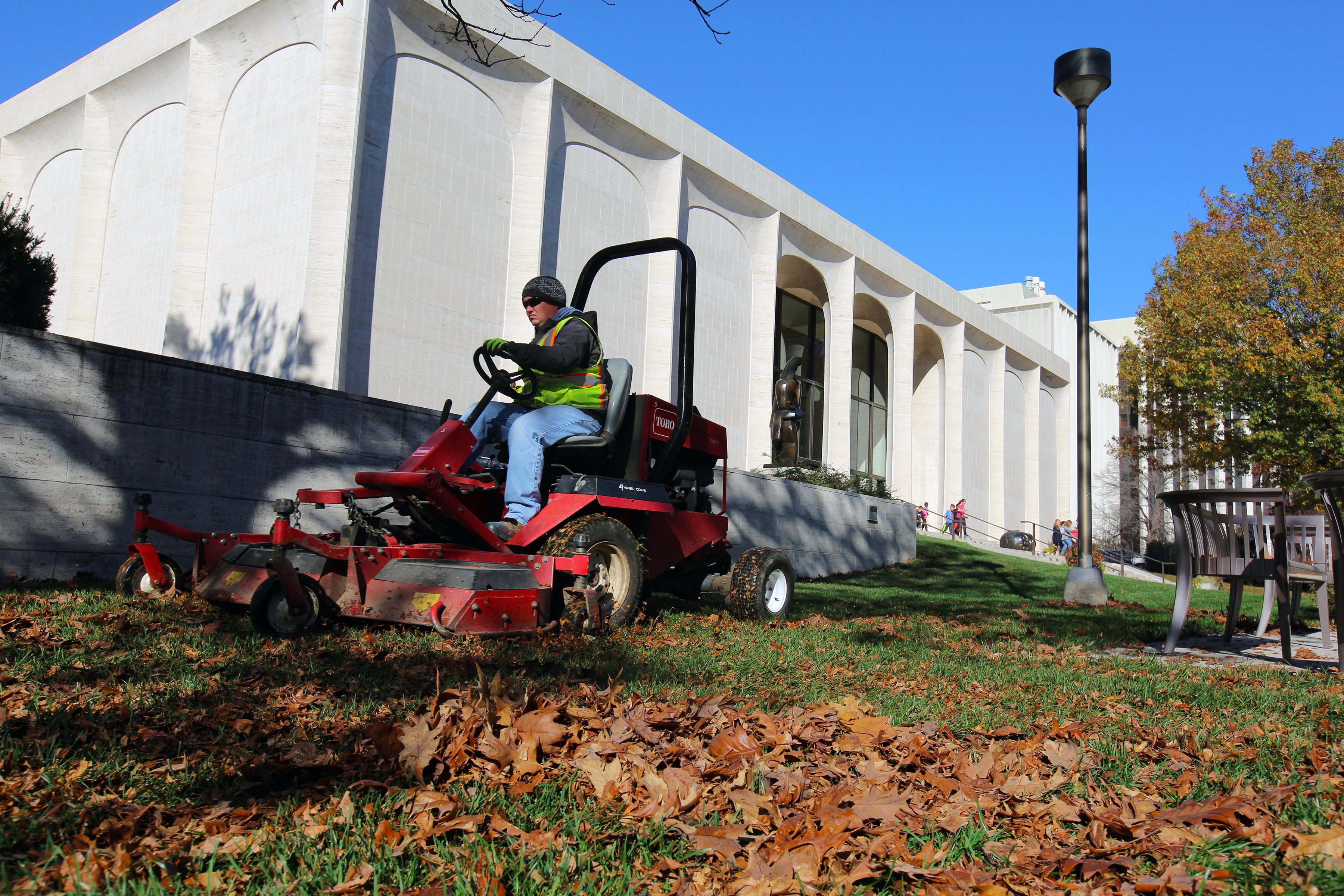
Fall raking is helping expand sustainability measures at the University of Nebraska-Lincoln.
Partnering with Nebraska Farmers Union’s Big Red Worms operation, Landscape Services has started to transport a portion of the university’s seasonal leaf litter to the vermicomposting operation in west Lincoln. The project expands the university’s existing partnership with Big Red Worms, which includes reducing food waste generated by restaurants in the Nebraska Union and during the annual Jazz in June concert series.
“Thus far this season, we’ve hauled 30 yards of leaves to Big Red Worms,” said Jeff Culbertson, assistant director of landscape services. “We hope to continue the project and send a couple of truck loads every week for the next three weeks or so, bringing the total to around 90 yards of leaves.”
Big Red Worms is using the fall leaf litter to make leaf mold, which is compost produced primarily by fungal breakdown of deciduous shrub and tree leaves.
“For us, the leaf mold is a value-added product that we will offer to growers and blend into our vermicomposting product,” said Jeremiah Picard, project manager for Big Red Worms. “We’ve not created leaf mold on this scale before, so this is an experiment of sorts. But working with the university is a great way to see if this is possible because they can supply us with a lot of leaves.”
Seasonal leaf fall from the university’s approximately 9,000 trees is removed by landscape services because it can cause walking hazards on sidewalks and hinder the growth of grass and other campus plantings.
University employees remove the leaves by mulching in place with lawnmowers on green spaces and raking/hauling them from other areas to a composting area on East Campus.
Culbertson said mulching in place continues to be the primary way to handle campus leaf litter. It’s also the method most landscape researchers recommended to homeowners seeking ways to remove fall leaves.
“Ideally, we like to handle them as little as possible because they take time and money to move,” Culbertson said. “Mulching in place is very efficient because we’re removing them through our normal mowing schedule. It also makes the most sense because mulching is a great way to use the organic matter of leaves to improve soil quality.”
Leaves and organic matter directed to the campus composting operation are incorporated into campus planting beds and green spaces as needed throughout the year.
“We’re always looking for ways to reuse the organic matter on campus to improve our soils,” Culbertson said. “And, this partnership with Big Red Worms is a great way for us to extend that thinking by sending excess materials to an operation that can repurpose them back into the environment.”
Picard said his partnership with the university has been a success. Along with receiving fall leaves, Big Red Worms is also handling almost three cubic yards of food waste from the Nebraska Union each week.
“That volume is equivalent to what we receive weekly from three public schools that we also work with,” Picard said. “And, working with the university has introduced us to folks who want to learn more about what we do.
“This is a partnership that has opened some new doors in terms of research and educational opportunities. We’re excited because the more people get involved in what we do, the more we’re able to benefit the environment.”








